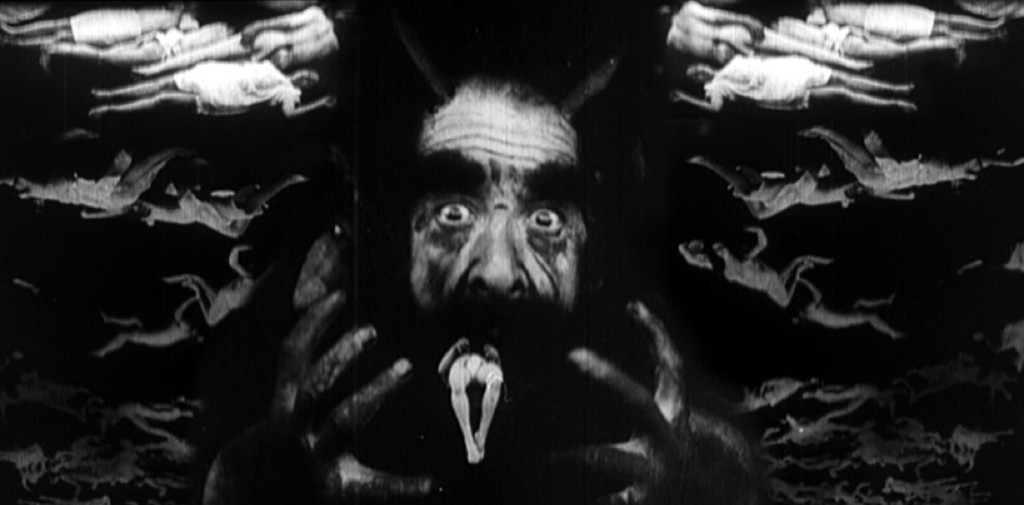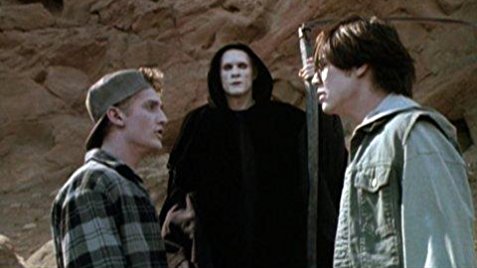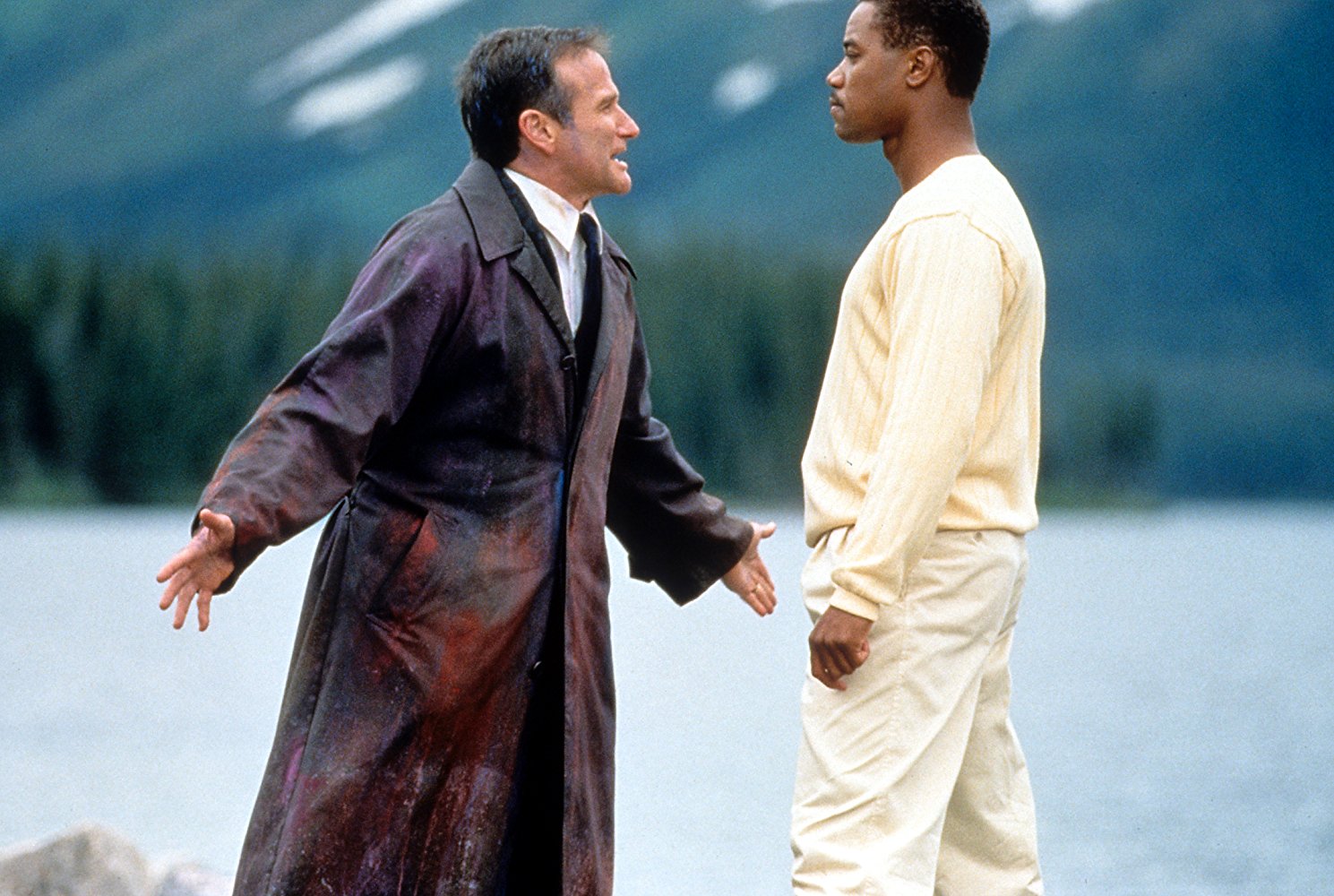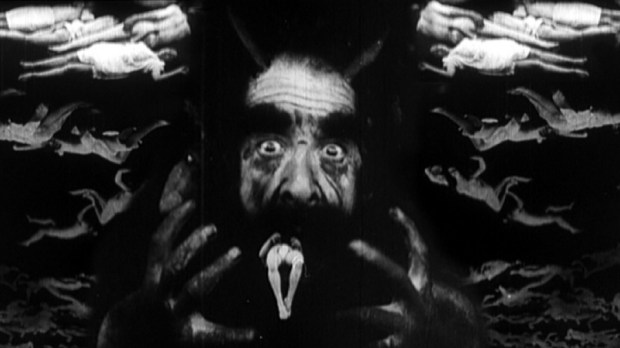Speaking about the afterlife during a 1999 General Audience, St. Pope John II explained how “The images of Hell that Sacred Scripture presents to us must be correctly interpreted. They show the complete frustration and emptiness of life without God. Rather than a place, Hell indicates the state of those who freely and definitively separate themselves from God, the source of all life and joy.”
It’s an elegant description for a decidedly unpleasant concept. Still, one can’t help but wonder just what exactly the experience of that state of being we call Hell is like. Well, as you might guess given the visual nature of their medium, filmmakers have had a few ideas on this very topic over the years. Most of them have obviously involved demons and lakes of fire, but others have chosen to portray Hell a little differently. Let’s take a quick look at some unique celluloid visions of perdition put to film and see how they measure up.
L’inferno (1911)

One of the earliest depictions of Hell on film went straight to the classics for its inspiration. Using the famous illustrations of Gustav Doré as its jumping off point, this French adaptation of Dante’s Divine Comedy provides visuals that are still striking over 100 years later. From the City of Dis to Satan devouring the souls of the damned, it’s all here. Be warned, however, that there is a recently restored version of L’inferno set to the music of Tangerine Dream which has proven not to be to everyone’s tastes. If that’s the only copy you can find, you may want to just cut the sound down and enjoy a silent trip through the wild and weird imagination of one of Hell’s most famous chroniclers.
Jigoku (1960)

Speaking of wild and weird, no list of movies about Hell would be complete without mentioning the Japanese film Jigoku. The story follows a theology student who becomes entangled with a family of gangsters following a hit-and-run accident. Events spiral out of control until every single character in the film is either murdered or commits suicide, at which point they all go straight to Buddhist Hell. Yes, there are strains of Buddhism that teach there is a Hell, or many Hells to be more accurate, and Jigoku’s protagonist travels through quite a few of them looking for a way out. People are boiled, flayed, and bludgeoned to death by ogres, then resurrected so they can go through it all over again. It may not exactly mirror the Christian concept of Hell, but it does demonstrate that the expectation of justice in the afterlife is ingrained in the DNA of people everywhere throughout time.
Bill and Ted’s Bogus Journey (1991)

Of course, nothing says that such justice is required to be one size fits all. In fact, according to the follow-up to Bill and Ted’s Excellent Adventure, Hell can get quite personal. After our two dimwitted heroes are unceremoniously dispatched by evil robot doppelgangers, they find themselves temporarily consigned to Satan’s domain. While there, they are tormented by childhood fears of Easter bunnies, mole-lipped grandmas seeking kisses, and drill sergeants demanding they do pushups for infinity. They eventually escape, but not before coming to the conclusion that Hell was nowhere near as cool as their heavy metal album covers had led them to believe it would be.
What Dreams May Come (1998)

The notion that whatever Hell we receive is one of our own making came to its natural and much more serious conclusion a few years later in What Dreams May Come. Here we have a Heaven and Hell whose landscapes are fashioned from our own mental states at the time of death. For Annie Collins-Nielsen, whose despair over the deaths of her husband and children has driven her to suicide, Hell is a distorted forever empty version of the home she once shared with her family. As with Bill and Ted, the Hell in What Dreams May Come has an escape clause, something the Catechism assures us doesn’t exist in the real life version. Bad theology aside, though, the idea that Hell is a trap we choose to enter isn’t that far off from the truth.
The Rapture (1991)

Which brings us to The Rapture, a justifiably R-rated movie made by an atheist that somehow manages to come the closest to portraying the Hell described by St. John Paul II. In the film’s final scene, the character played by Mimi Rogers stands on the bank of a small stream in the middle of a dark, barren landscape. On the opposite side stands her recently deceased daughter who begs the woman to ask for God’s forgiveness and accept his love before the world ends and she no longer has a chance to join her family in Heaven. Tragically, the mother is unwilling to “forgive God” for events that have occurred over the course of the movie, and she chooses Hell rather than release the anger in her heart. As her saddened daughter fades from sight and the world begins to darken, the camera (and therefore we viewers as well) slowly pulls away from the woman, leaving her isolated and completely alone for all of time with nothing but her pain and bitterness for company.
It’s a chilling and powerful image of eternal separation from God and everyone else we’ve ever loved, made all the more so because it shows that such a Hell is ultimately a choice. That someone would make that choice is probably one of the saddest things you could imagine, which when you think about it, was kind of JPII’s point all along.

